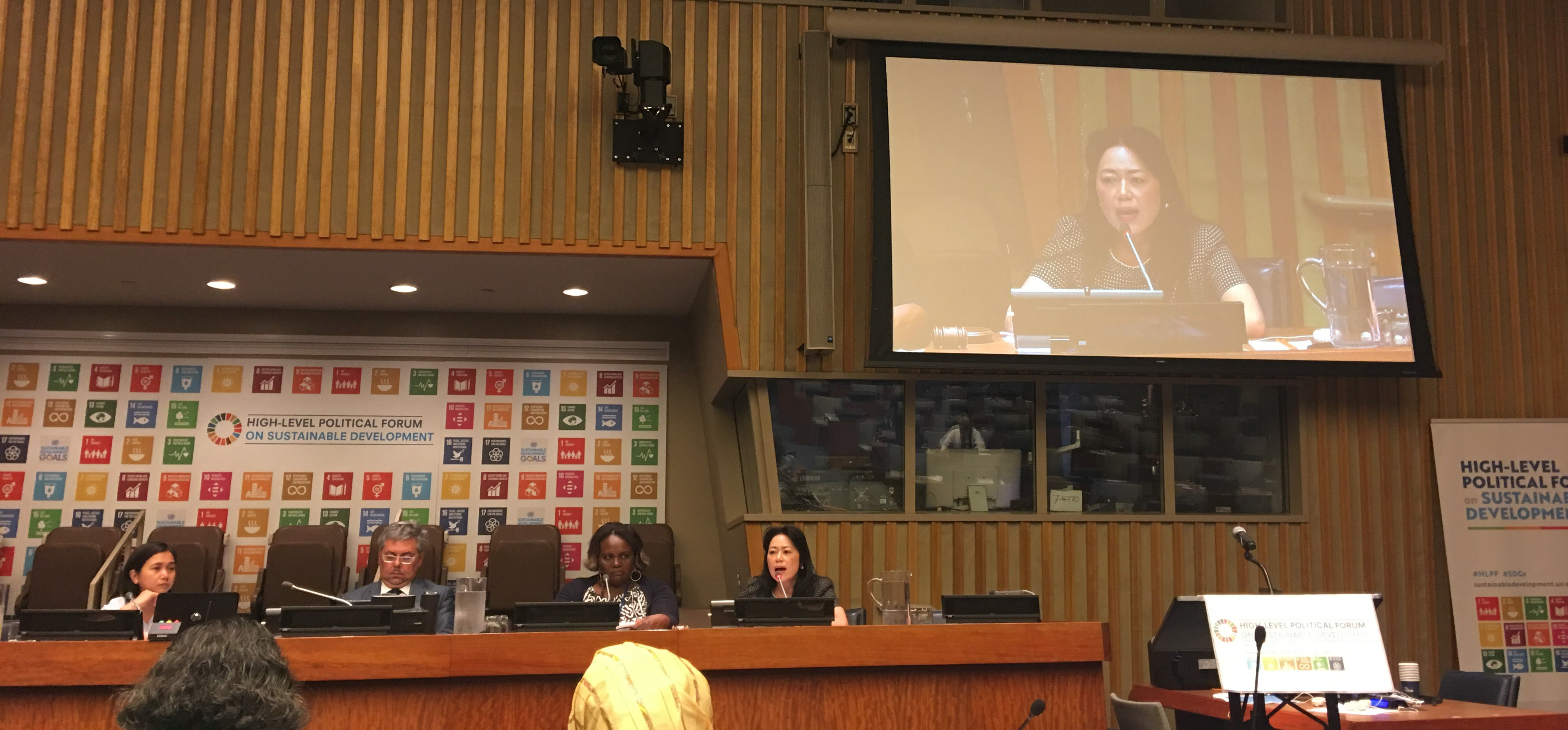As highlighted in a previous blog, the United Nations 2030 Agenda can seem jargon-heavy. As in any big, institutional process, certain keywords emerge, and take on a power they may not have in the outside world.
While it may not seem natural, being able to use these words in library advocacy can be a great way of gaining attention among the people in government whose job is to work on the SDGs.
One such word is ‘resilience’. In the world of the SDGs, this is an important concept reflecting a shift in thinking about development from dealing with the consequences of change to helping people, communities and nations prepare and respond to it themselves, as far as possible.

This stems firstly from the idea that we need to defend everyone’s right to development – i.e. that everyone should have the resources and possibilities to improve their own lives. It also comes from the acceptance that at a time of rapid technological, economic, social and environmental change, it is no longer enough to try and determine solutions that last for a long time, but to build in the ability to evolve at all levels.
Resilience is an important word for library advocacy around the SDGs for three reasons highlighted during discussions on Day 4 of the High Level Political Forum.
Libraries as Critical Community Assets to Protect
A session on the Sendai Framework for Disaster Risk Reduction focused on how best to prepare for and respond to disasters, both natural and man-made. It provided an opportunity to set out the place of libraries, both as critical community institutions that need to be covered by risk reduction plans (in order to limit damage), but also as part of recovery efforts.

Shoko Arakaki, UNISDR Chief of Branch, Partnerships, Inter-governmental process and Inter-agency cooperation
As set out in the IFLA briefing on the Sendai Framework, libraries often contain materials which are invaluable to their communities. With heritage an important driver of community cohesion, identity and potentially jobs, its loss can mean serious long-term damage. Libraries therefore need to be covered by government planning and investment, a point welcomed by the panelists in the session at the UN.
Libraries as Secondary Emergency Service
Yet libraries can also be crucial in the days and weeks after a disaster hits. There are many examples of libraries acting as refuges in times of crisis, providing electricity, connectivity, or simply a space of calm for people in situations of extreme stress.
While food and healthcare are clearly priorities, libraries are arguably a secondary emergency service, helping people move back towards normal life. As such, they can be key to the process of rebuilding.
Libraries Building Resilience for the Long Term
Libraries also contribute strongly to longer-term resilience through providing access to information. By this, they provide an answer not just to sudden disasters or crises, but to the trends and evolutions that are changing the way we live, learn, earn and interact with each other.
As highlighted in the Lyon Declaration and the Development and Access to Information report, information can empower people, giving them the tools not only to respond to change, but also identify and realise new opportunities. When everyone is a lifelong learner, and that communities, with access to information, can find ways to adapt and thrive, we are a long way to having achieved resilience.
‘Resilience’ is therefore a great concept for libraries to use in their own work around the SDGs, both in order to safeguard our own institutions in times of crisis, but also to highlight their role in creating sustainable cities and communities into the future.